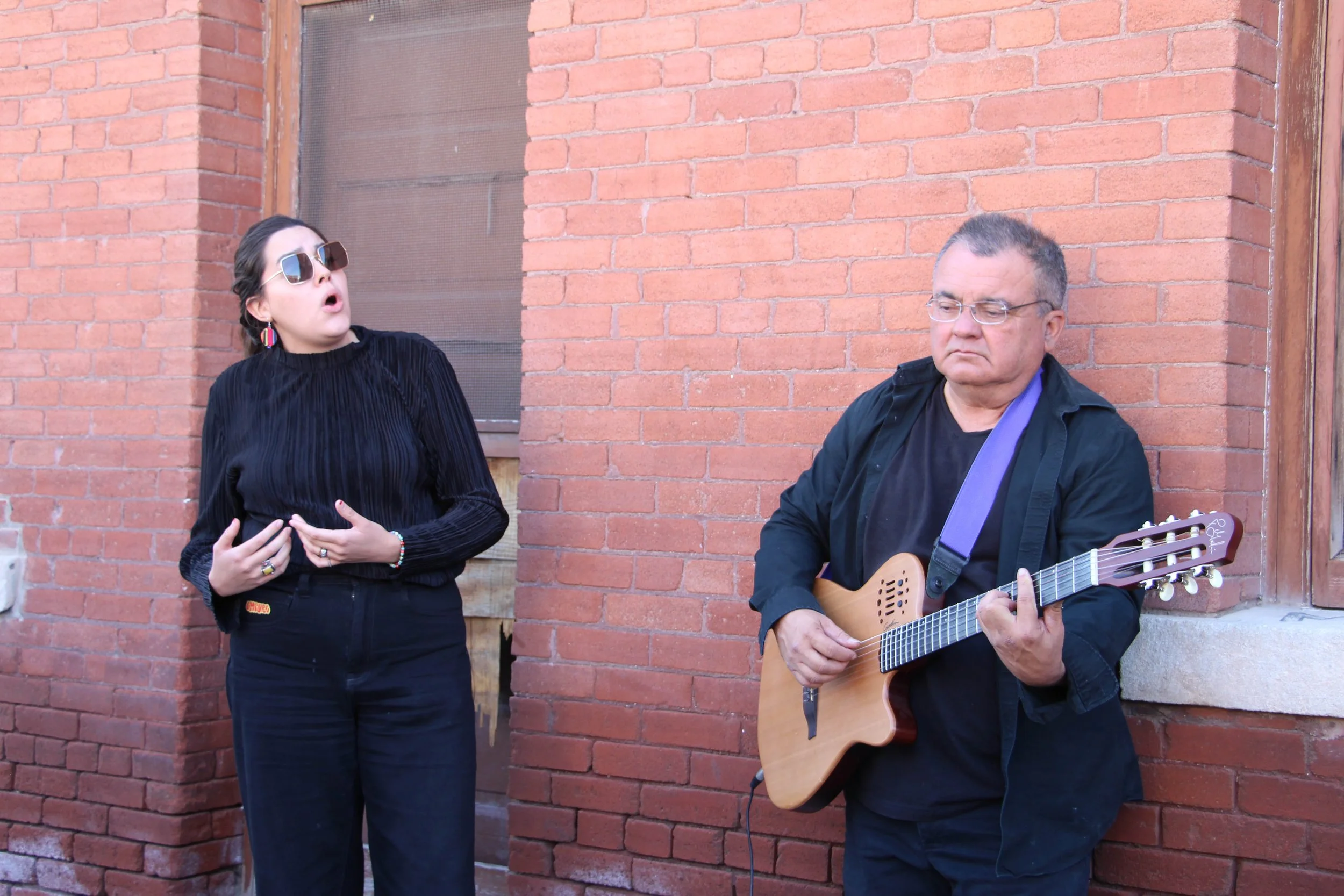Adriana Lopez
Musician and Educator
El Paso, TX
11/3/21
Adri Lopez’s powerful voice resounds throughout the city of El Paso. A musician and educator, Adri uses her vocal talent to fight for what she believes in: protecting culture and history in El Paso while spreading el cariño—a word with no direct English translation that refers to a special kind of love with tenderness, something that Adri feels is unique to El Paso and Juárez, its sister city directly across the Mexico border.
Adri was born and raised in El Paso and has made her way back home after a decade away. In her time away from her home city she heard many narratives about El Paso that weren’t true to her experience. Wanting to correct these false conceptions, she gained an understanding and appreciation for the rich stories and history of El Paso. This experience brought her home—to the place where she feels el cariño.
Led by her passion for writing, poetry, and especially music, Adri uses her talents to fight. Duranguito, El Paso’s oldest neighborhood is under threat by developers and the city council to be demolished to make space for a new stadium. Adri sees the importance of this place, for its historical value as the oldest part of the city, but also for the diversity of culture that it holds as a place of border and a first stop for many different groups entering the U.S. In the fight to protect Duranguito, Adri, along with historian David Romo, produces music with messages of revolution. Adri and David’s pieces vary in style, but all fall into the musical traditions of past residents of Duranguito, a nod to the diversity of culture that this place holds and that Adri hopes to preserve.
By Katie Wallace
Video credit: Haley Post


